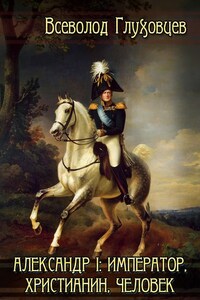It was late in the history of the world before Europe and America became known to each other. During the first fifteen centuries of the Christian era Europe was unaware of the vast continent which lay beyond the sea. Asia had ceased to influence her. Africa had not begun. Her history was waiting for the mighty influence which America was to exercise in her affairs through all the future ages.
Men had been slow to establish completely their dominion over the sea. They learned very early to build ships. They availed themselves very early of the surprising power which the helm exerts over the movements of a ship. But, during many ages, they found no surer guidance upon the pathless sea than that which the position of the sun and the stars afforded. When clouds intervened to deprive them of this uncertain direction, they were helpless. They were thus obliged to keep the land in view, and content themselves with creeping timidly along the coast.
But at length there was discovered a stone which the wise Creator had endowed with strange properties. It was observed that a needle brought once into contact with that stone pointed ever afterwards steadfastly to the north. Men saw that with a needle thus influenced they could guide themselves at sea as surely as on land. The Mariners’ Compass untied the bond which held sailors to the coast, and gave them liberty to push out into the sea.
Just when sailors were slowly learning to put confidence in the mariners’ compass, there arose in Europe a vehement desire for the discovery of unknown countries. A sudden interest sprang up in all that was distant and unexplored. The strange fables told by travellers were greedily received. The human mind was beginning to cast off the torpor of the Middle Ages. As intelligence increased, men became increasingly eager to ascertain the form and extent of the world in which they dwelt, and to acquaint themselves with those unknown races who were their fellow-inhabitants.
Portugal and Spain, looking out upon the boundless sea, were powerfully stirred by the new impulse. The Courts of Lisbon and Madrid swarmed with adventurers who had made discoveries, or who wished the means to make them. Conspicuous among these was an enthusiast, who during eighteen years had not ceased to importune incredulous monarchs for ships and men that he might open up the secrets of the sea. He was a tall man, of grave and gentle manners, and noble though saddened look. His eye was gray, “apt to enkindle” when he spoke of those discoveries in the making of which he felt himself to be Heaven’s chosen agent. He had known hardship and sorrow in his youth, and at thirty his hair was white. He was the son of a Genoese wool-comber, and his name was Christopher Columbus. In him the universal passion for discovery rose to the dignity of an inspiration.
No sailor of our time would cross the Atlantic in such ships as were given to Columbus. In size they resembled the smaller of our river and coasting vessels. Only one of them was decked. The others were open, save at the prow and stern, where cabins were built for the crew. The sailors went unwillingly and in much fear – compelled by an order from the King. With such ships and such men Columbus left the land behind him and pushed out into these unknown waters. To him there were no dangers, no difficulties – God, who had chosen him to do this work, would sustain him for its accomplishment. He sailed on the 3rd of August 1492. On the 12th of October, in the dim light of early morning, he gazed out from the deck of his little ship upon the shores of a new world. His victory was gained; his work was done. How great it was he himself never knew. He died in the belief that he had merely discovered a shorter route to India. He never enjoyed that which would have been the best recompense for all his toil – the knowledge that he had added a vast continent to the possessions of civilized men.
The revelation by Columbus of the amazing fact that there were lands beyond the great ocean, inhabited by strange races of human beings, roused to a passionate eagerness the thirst for fresh discoveries. The splendours of the newly-found world were indeed difficult to be resisted. Wealth beyond the wildest dreams of avarice could be had, it was said, for the gathering. The sands of every river sparkled with gold. The very colour of the ground showed that gold was profusely abundant. The meanest of the Indians ornamented himself with gold and jewels. The walls of the houses glittered with pearls. There was a fountain, if one might but find it, whose waters bestowed perpetual youth upon the bather. The wildest romances were greedily received, and the Old World, with its familiar and painful realities, seemed mean and hateful beside the fabled glories of the New.
Europe then enjoyed a season of unusual calm – a short respite from the habitual toil of war – as if to afford men leisure to enter on their new possession. The last of the Moors had taken his last look at Granada, and Spain had rest from her eight centuries of war. In England, the Wars of the Roses had ceased. After thirty years of hard fighting and huge waste of life and property, the fortunate English had been able to determine which branch of a certain old family was to rule over them. Henry VII., with his clear, cold head, and his heavy hand, was guiding his people somewhat forcibly towards the victories of peace. Even France tasted the joy of repose. The Reformation was at hand. While Columbus was holding his uncertain way across the great Atlantic, a boy called Martin Luther was attending school in a small German town. The time was not far off, but as yet the mind of Europe was not engrossed by those religious strifes which were soon to convulse it.








